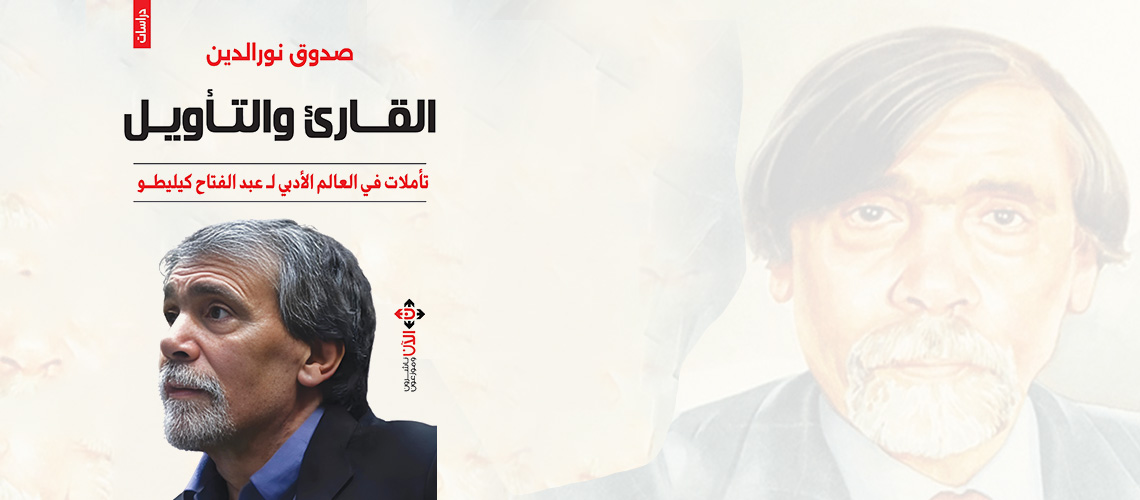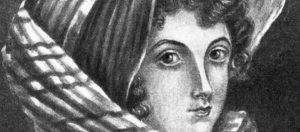Moroccan writer and critic Sadouk Noureddine explores the literary world of renowned Moroccan author, novelist, and critic Abdelfattah Kilito in his new book, “The Reader and Interpretation”. Adopting a comparative and synthetic approach, Noureddine examines a literary and philosophical work produced in the past and contrasts it with contemporary interpretations of the same work.
The author opens his 100-page book, recently published by Alaan Publishers and Distributors in Amman, with an introduction titled “For Common Concerns”, in which he recalls his encounter with Abdelfattah Kilito at the Casablanca International Book Fair in February 1988.
“From afar, I saw him—slim, with a light beard. Sitting near an empty table and chair, ready for book signings, he appeared calm and neat, while the Red Passage echoed with silence. I smiled, offering a nod of appreciation, and he smiled back. Not a word was exchanged. He didn’t ask anything, and neither did I. I sat down. He took out his pen and inscribed, in slightly slanted Arabic: “For common concerns”.
The author continues to evoke the nuances of that scene, capturing its narrative delicacy and subtly revealing aspects of Kilito’s personality: “He handed the book back to me with a quiet smile, and I smiled in return. Not a word passed between us. He rose from the chair, straightened his posture, and reclaimed his air of composed detachment.
Lighting a cigarette, he cast a distant glance that suggested he was both present and elsewhere at once—perhaps dwelling in a passage from “One Thousand and One Nights”, or mentally drafting an analysis of “Maqamat al-Hariri” or “Badi’ al-Zaman al-Hamadhani”. He seemed to think on his feet, standing still yet immersed in thought. Occasionally, he would pace slowly, as though wary of disturbing the silence—a silence that would soon dissolve when his table overflowed with curious onlookers and eager hands clutching copies of his books, waiting for his signature.
As I left the exhibition hall at six o’clock, the scene lingered in my mind. The book, with its cover designed by poet Eid Banat, is structured around key thematic headings that reflect the intellectual pathways explored by the author. Each main heading is further divided into sub-sections, offering deeper insights.
The primary titles include: “Towards a New Literary Criticism… Between Abdelkebir Khatibi and Abdelfattah Kilito”; “The Image of Ibn Rushd in Literature… The Model of Abdelfattah Kilito”; “The Poetry of Digression… Between Abdelfattah Kilito and Abdeslam Ben Abdelali”; “Jorge Luis Borges… Between the Life of Writing and the Life of the Author”; “Mustafa Lotfi Al Manfaluti… The Beginnings and the Discovery of Literature”; “Abdelfattah Kilito and Fiction Writing” and “Back to the Beginning / The Question of Modern Literature”.
In his book, Sadouk Noureddine concludes that talking about Abdelfattah Kilito inevitably involves portraying the image of the reader. He states: “I say: the formidable reader is who compels you to follow and revisit what you may have overlooked or forgotten, who brings to light what you may not yet know.” It often happens that ideological pressure is exerted on those who read, and on those who reflect upon creative Moroccan or Arab figures who have established the traditions of literary writing. Kilito stands out with his encyclopaedic knowledge of both world and Arabic literature—a uniqueness that is evident in his writing, composition, and mastery of form and structure.
Noureddine asserts that the question of modern literature remains ever-present in the critical accomplishments of Abdelfattah Kilito, though it does not hold the same privilege or status as ancient literature, which has garnered his extensive attention and meticulous care. While modern Arabic literature is distinguished by its historicity, which invites study and comparison, modern Moroccan literature lacks this same historicity. The delayed emergence of Moroccan literature, coupled with the Arab and Levantine influences that have shaped it, calls for careful reflection before engaging in serious and objective critical analysis.
Noureddine has authored several critical works, including “The Limits of the Literary Text”; “The Literary Text: Manifestations of the Connection with the Classics”; “Abdullah Laroui and the Modernity of the Novel”; “The Beginning in the Narrative Text”; “The West in the Arabic Novel”; The Novel and the Production of Awareness: A Study in the Game of Forgetting”; and “The Self and the World: A Study in the Diary”, among others.




